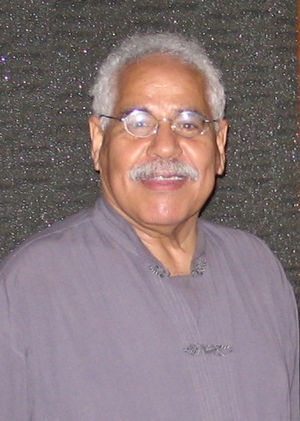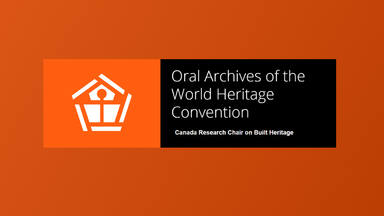
Interview
Azedine Beschaouch
World Heritage Convention
A Tunisian historian and archaeologist, Azedine Beschaouch is a specialist in ancient Africa.
After studying at the École normale supérieure in Paris, he worked in Tunisia as inspector of Antiquities before being appointed director of the National Institute of Archeology and Art (now National Institute of Heritage) in 1973.
As Deputy Mayor of Carthage between 1975 and 1990, he contributed to the inscription of this ancient site on the World Heritage List in 1979. During that period, he held various positions related to UNESCO’s World Heritage. He was a member of the Committee as a representative of his country, serving as rapporteur in 1981 and then twice as president in 1989 and 1991. The following year he became the representative of the Assistant Director-General for Culture. Responsible for special missions regarding the heritage of Palestine, Bosnia and Herzegovina, and Cambodia, he became particularly involved in the safeguarding of Angkor.
Azedine Beschaouch is a member of the Tunisian Academy of Sciences, Letters and Arts and an Officer of the Legion of Honor of France. He is also an advisor to the Deputy Prime Minister of the Kingdom of Cambodia. Among his publications are Mustitana. Recueil des nouvelles inscriptions latines de Mustis (Klincksieck, 1968), Recherches archéologiques franco-tunisiennes à Bulla Regia (École française de Rome, 1983) and La légende de Carthage (Gallimard, 1993).
Interview with
Azedine Beschaouch
28 July 2010 in Brasilia, Brazil
The following audio excerpts are from an interview with Azedine Beschaouch by Christina Cameron and Mechtild Rössler 28 July 2010 in Brasilia, Brazil. Through his many recollections, he recounts the first years of the Convention and traces the evolution of the process of inscription and management of properties on the World Heritage List. Through a multitude of concrete examples drawn from his long experience at UNESCO, he speaks about the challenges, the subtleties, the weaknesses and the successes of this tool of international cooperation.
- 1. The World Heritage Convention
- 1a. Involvement and participation of Azedine Beschaouch in World Heritage
- 1b. Aims and objectives of the Convention
- 1c. The World Heritage List
- 1d. Failures and successes of the Convention
- 2. The World Heritage Committee
- 3. The advisory bodies
- 3a. IUCN, ICOMOS and ICCROM
- 3b. Performance of ICOMOS
- 4. The UNESCO Secretariat
- 5. "Human" problems in World Heritage
Oral Archives of the
World Heritage Convention
Under the leadership of the Canada Research Chair on Built Heritage at the University of Montreal, an international team of researchers conducts interviews with pioneers of World Heritage to capture memories of important moments in the history of UNESCO Convention.
Launched in 2006, this initiative is part of the UNESCO History project that celebrated the 60th anniversary of the creation of UNESCO. The Oral Archives project records the precious witness of people closely associated with the creation and implementation of the Convention. Their recollections and views have greatly enriched the book by Christina Cameron and Mechtild Rössler, Many Voices, One Vision: The Early Years of the World Heritage Convention (Ashgate/Routledge, 2013).
